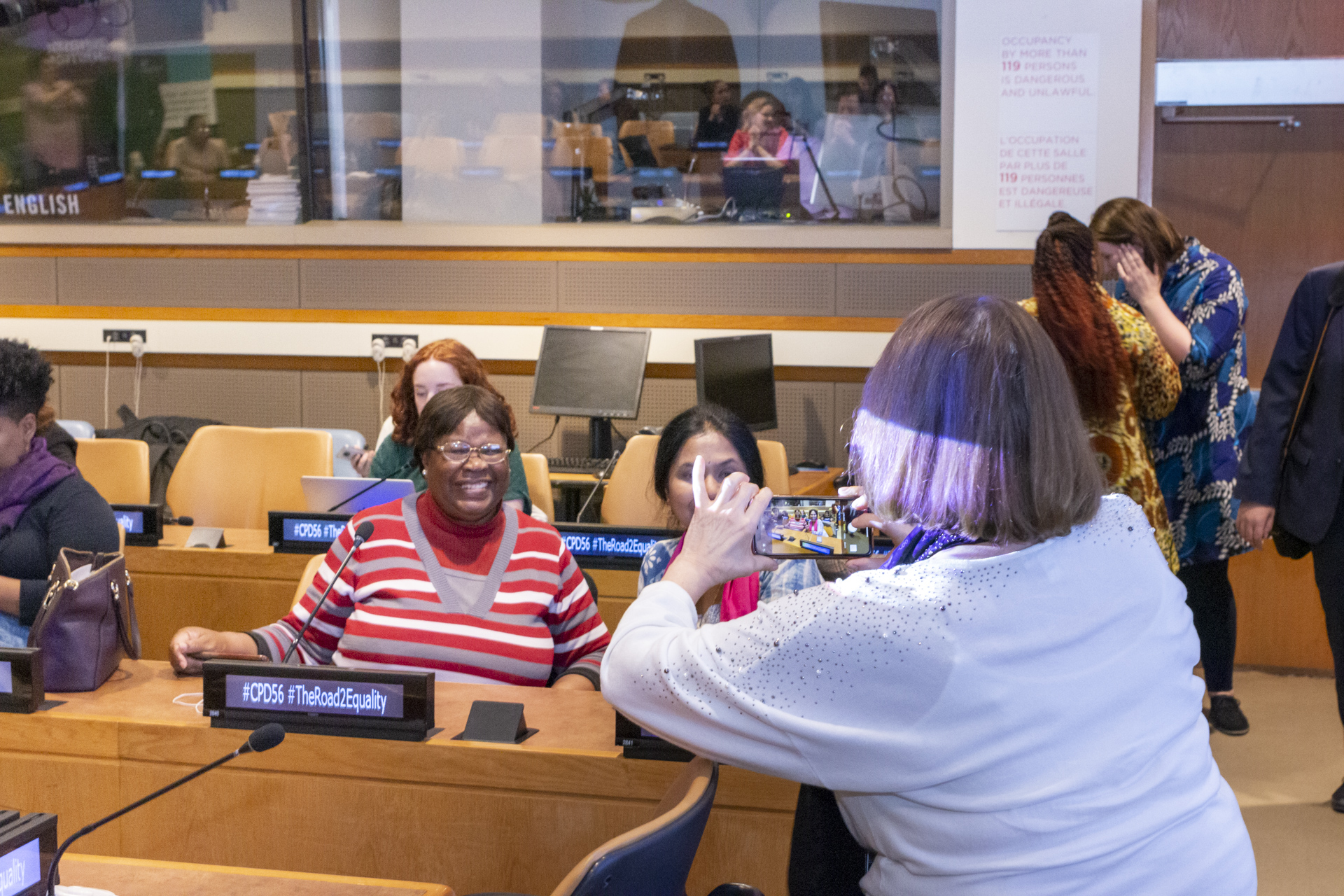Five Key Takeaways from ACT Alliance’s participation CPD56
Next year will mark the 30th anniversary of the ICPD Programme of Action, and while progress has been made, this remains too slow and uneven. ACT Alliance convened a global delegation of members to participate in the 56th UN Commission on Population and Development, with representation from Argentina, Ethiopia, Nepal, Kenya, South Africa, and Brazil. ACT members were also part of the national government delegations of Sweden and Norway.
As we reflect on our participation, here are our 5 key takeaways:
- Multi-stakeholder partnerships and feminist allies are critical to amplify a collective voice. To implement the ICPD Programme of Action, and advance SRHR, we must break silos and be catalytic collaborators, working across different sectors. For example, ACT Alliance has been participating in the broad civil society platform of International Sexual and Reproductive Rights Coalition and actively collaborating with secular feminist organisations, UN Agencies, and Member States, to create collective calls and collaborations for reproductive justice, and counter backlashes on human rights, including SRHR.
- When governments talk about sex – they might really be talking about geopolitics. Many adolescents and young people, including the most marginalized young people, continue to face structural and societal gendered barriers in terms of accessing education, which was the focus of this year’s commission. The crux of the negotiations focused on Comprehensive Sexuality Education (CSE), which can support adolescents and young people’s decisions concerning their sexuality, health and well-being. Yet, the relationships between nation-states (the geopolitical context) were apparent, as Member States navigated an overtly politicised and polarised discussion on the right to education.
- Religion and human rights continue to be polarised in UN spaces. Whenever religion enters the public sphere or becomes powerful in politics, it tends to orbit around gender issues. Patriarchal gender norms, which block progress on advancing SRHR, are packaged in the language of religion because it legitimises them. You can read more on the nexus between religion, gender and development, in our co-published report, The Role of Religious Actors in Gender Equality since the Beijing Declaration (Khalaf-Elledge 2021: 44). However, this does not reflect the reality on the ground and ACT members and faith-partners engaged in ICPD show the importance of working with religious actors to advance SRHR.
- Anti-rights actors are coordinated and have money. The 1994 UN Population and Development Conference in Cairo affirmed aspects of SRHR and a number of crucial aspects in regard to healthy, sustainable population and human lives around the world: “179 world leaders reached a consensus and adopted a programme of action, which enshrined individual reproductive rights as a basic human right.”. Yet, nearly 30 years later, strategic anti-rights alliances, which are often well-funded, are creating resistance to reproductive justice. In the case of the 56th CPD, the pushback on gender equality prevented an agreement by Member States from being reached.
- ACT Alliance’s diversity is our strength, we have a powerful role as a rights and faith-based alliance, to reclaim religious narratives for gender justice.
“Whatever our faith or cultural background, let us give every girl the protection, information and resources she needs to thrive.” – Dr. Kanem, Executive Director, UNFPA;
“It is important to adapt the language of SRHR to the local level, faith communities are the potential translators for what this means.” – Nirmala, World YWCA, Nepal;
“Promote new narratives, aligning with bodily autonomy, by creating narratives close to the ground. Norms and values are not static; they are open to interpretation and change.” – Paula, CDD Mexico;
“As communities of faith we cannot be silent when girls and women in all their diversities are being threatened and inequalities exacerbated.” – Zanele, ACT Ubumbano, South Africa.
Our delegates contributed to Side Events, bi-lateral meetings with member States, strategy sessions, and networking with civil society actors. As faith actors, who are rooted in communities, our members powerfully shared how methodologies and practices are advancing Sexual and Reproductive Health and Rights, including in an oral statement. As part of our advocacy we co-hosted the Side Event, ‘Between Taboos and Freedom: Religion, Rights and Reproductive Justice’, which you can watch on UN WebTV here.
